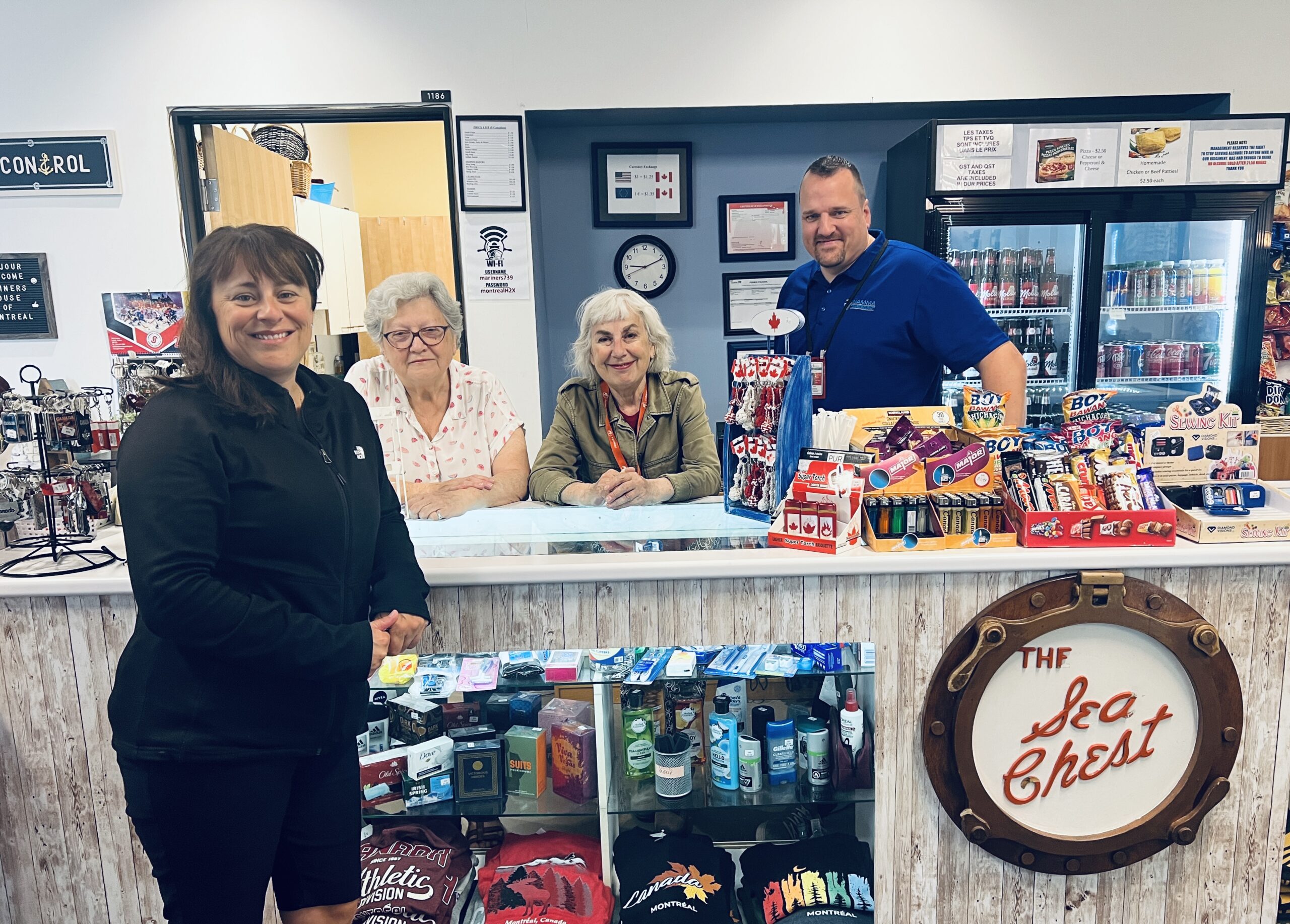by Susan Huppert, NAMMA
Recognizing seafarers as essential workers and understanding their role in the global market is yielding support for their vaccination needs in various Canadian ports.
The Chamber of Shipping, the voice of the marine industry on Canada’s West Coast, is working with four regional health authorities to make vaccinations available to the previously unrecognized workforce. Health officials in British Columbia are responding efficiently to vaccinate seafarers against COVID-19. Various provincial health agencies included in this effort are Vancouver Coastal Health, Fraser Health, Northern Health and Vancouver Island Health. The vaccines are offered to seafarers free of charge and the Chamber of Shipping is helping facilitate transportation, including those who are vaccinating seafarers at anchorage. Recently 11 seafarers where vaccinated on one vessel while waiting to dock.
“The process has been very good,” said Chamber of Shipping Vice President, Bonnie Gee.
She estimates about 50 percent of seafarers are receiving vaccinations while on board. Others who are able to get off their ships are receiving vaccines through provincial health agencies. On Canada’s west coast nearly 1,000 seafarers have been vaccinated since August.
Shipping companies’ agents can contact service providers to begin the process of seafarers receiving a Provincial Health Number (PHN) in advance. A PHN is one of the criteria needed for access to vaccines along with personal identification.
The process of vaccine delivery varies per port across the country.
Chaplain Dan Phannenhour serves with the Mission to Seafarers in Hamilton, Ontario, where he estimates 100-130 seafarers arrive weekly. The recent emergence of a partnership with health care workers in Hamilton assisting in the Port of Hamilton has been a welcome provision for seafarers.
After learning of the Shelter Health Network’s work to vaccinate homeless and otherwise marginalized people by bringing the vaccines to those in Hamilton, Phannenhour contacted Dr. Kerry Beal, the lead physician of the outreach to request vaccinations for seafarers. Understanding the seafarers, as within their target mission, Beal agreed. During the last week of October, 15 seafarers in the port had received vaccinations.
When a ship’s agent requests vaccinations for a crew or crew-member, Phannenhour coordinates schedules with his designated providers. Beal and Dr. Joe Oliver arrive at the port with a nurse who administers the shots. Printed verification of the vaccination is provided to the seafarers so they can move more freely among countries, reducing stress. Every request for a vaccine has been met, according to Phannerhour.
The vaccination process in the Port of Montreal is going very well according to Michelle DePooter, lead chaplain at The Ministry to Seafarers outreach there.
“We have a good relationship with those who run the clinic. We make up a spreadsheet with the seafarer’s data and send it to a government walk-in clinic that is quite willing to vaccinate them with just a passport,” she said. “They do their best to match vaccines with those seafarers have previously received in other countries.”
Eight-hundred seafarers have been vaccinated since early July, according to DePooter.
The public health agencies procure the vaccines. It is up to each province to decide about distribution. The Quebec government was all in. When health care staff was available during the summer months, a mobile clinic was set up at the port in Montreal.
The Canadian Seafarer’s Welfare Board includes industry professions, shipping agents, welfare agencies and others cooperate nationally regarding the welfare of seafarers. A unified approach and shared solutions are benefits for all. Each seafarer center works with the acquired information from the welfare board on their own end to establish a path to vaccines for seafarers in their respective location.
Significant headway is being made. Some barriers still exist.
Provincial governments have various “hoops to jump through,” said DePooter. “I am thankful for the cooperation of Quebec. We all work very well together.”
“The seafarers are very thankful.”
Additionally, “Every ship company has its own policies and procedures. So it’s been a learning curve,” said Gee. “But it’s very rewarding as well.”
Canada’s decision regarding vaccinating children could have some bearing on access for non-Canadians.
For now, the process of providing access to vaccines is going well at the Port of Halifax according to Mission Manager, Helen Glenn, of The Mission to Seafarers Halifax.
When the need for vaccinations developed, Glenn submitted various communications to key medical contacts for Nova Scotia Immunizations and Strategies to establish protocols regarding seafarers.
“We are most grateful to the Nova Scotia Public Health system for facilitating our request,” she wrote in an email. “Once protocols were established and shared, it finally came to fruition.”
The initiative includes facilitating the vaccination of seafarers on request. In Halifax, the Mission transports seafarers to community clinics, pharmacies or the IWK Health Center in Nova Scotia. They are mandated to test all seafarers for COVID-19 prior to transporting to a community clinic or pharmacy for vaccines. This causes many issues due to time constraints.
Once the process was established and approved by the medical partners in Nova Scotia, a copy of the protocols was shared with the Canadian Seafarers’ Welfare Board, in the hope of gaining their assistance to expedite seafarer needs, particularly as it relates to requested shore leave, according to Glenn.
Those concerned for seafarers count on and work together with ship owners, agents, port authorities and government agencies permitting welfare centers to advocate on behalf of seafarers from around the world. The Mission to Seafarers in Halifax has facilitated 167 seafarers’ vaccinations to date.
Even so, the requests not met are of concern for Glenn.
Because of fast turnarounds, captain’s concerns, the logistics of preliminary testing, coordinating where to go and how to obtain the number of vaccines required on a day-to-day basis can often create delays in Halifax.
Glenn writes, “Regardless, we are humbled and honestly grateful for the work of everyone involved to facilitate this critical outcome – vaccinating seafarers. We are truly blessed.”





